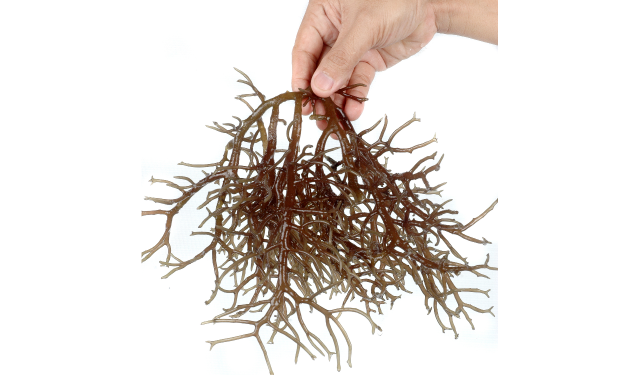Brown algae sequester huge amounts of carbon – According to researchers at the Max Planck Institute for Marine Microbiology, brown algae such as fucus, could remove up to 550 million tons of carbon dioxide from the atmosphere each year.
These species absorb large amounts of carbon dioxide from the air and release parts of the carbon as mucus that is difficult for other ocean dwellers to break down, so, as the researchers say, the carbon is removed from the atmosphere for a long time.
In essence, brown algae absorb more carbon dioxide from the air than terrestrial forests.
The research whose lead author is Hagen Buck-Wiese of the Max Planck Institute for Marine Microbiology, shows that brown algae can remove large amounts of carbon dioxide in the long term and therefore can counteract global warming.
Algae absorb carbon dioxide from the atmosphere and use the carbon to grow. They release up to a third of the carbon they absorb into seawater, for example in the form of sugary excretions. Depending on the structure, the excretions are quickly used by other organisms or sink to the seabed.
The study highlights that the algal mucosa called fucoidan is particularly responsible for this carbon removal and estimates that brown algae could remove up to 550 million tons of carbon dioxide from the air each year, nearly the amount of the entire annual carbon emission. greenhouse of Germany.
In addition, fucoidan does not contain nutrients such as nitrogen, therefore, the growth of brown algae is not affected by carbon losses.
To conduct the study, Buck-Wiese and his colleagues from the MARUM MPG Bridge Group Marine Glycobiology, which is based at both the Max Planck-Institute Bremen and MARUM – Center for Marine and Environmental Sciences at the University of Bremen, conducted their experiments at the Tvärminne Zoological Station in southern Finland.
Brown algae sequester huge amounts of carbon








